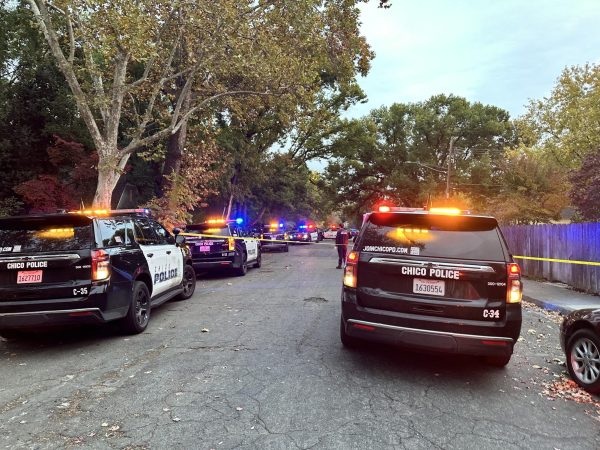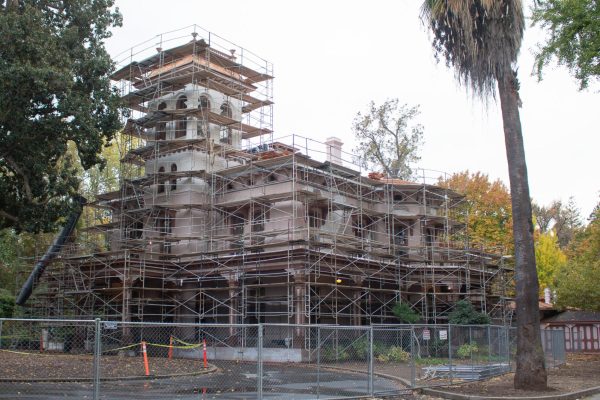Chemistry department aims to improve student success
Nobody comes to university to fail classes, though any number of factors can cause students to fall behind.
A student typically looks to their own shortcomings to explain a bad grade, but less often do instructors hold themselves accountable.
The Chico State Chemistry and Biochemistry Department is in the midst of a massive overhaul. Many professors within the department were unhappy with the pass rates of the students in their courses. Dr. Erik Wasinger teaches chemistry 111, more specifically the general chemistry course, a class students have historically struggled in.
“In general chemistry, like most of our CSU sister schools, we have a very high DFW rate,” Wasinger said. “That’s students getting D’s, F’s and simply dropping out.”
In an effort to improve the DFW rate, Wasinger was among the first to redesign his course with student success in mind. Prior to the redesign, a typical class period was mostly comprised of lectures. Now, about half of the lecture material is online in the form of instructional videos students can access at any time. This frees up class time for more hands-on activities, real-world examples and group learning.
In addition to online materials, many chemistry classes have added Supplemental Instruction sessions as a resource to students. SI sessions are regularly scheduled study periods operated by a student leader with knowledge of the course materials. These SI leaders attend class with the students, participate in discussions and develop their own study materials to reinforce concepts during the sessions.
The SI program is operated separately from the classes themselves. Tiffani Anderson teaches chemistry 108, organic chemistry for non-majors, and supplements her lectures with SI.
“It’s really important with the SI model that the students realize that I trust my leader so they can trust them too,” Anderson said.
The DFW rate for chemistry 108 has dropped from 33 percent to 25 percent since SI was implemented. Wasinger’s chemistry 111 class has also seen a 25 percent decline in the DFW rate and an average 20 percent increase in test scores for those students who regularly attend the program.
The chancellor’s course redesign program is being funded through student learning fees. Five different chemistry courses are undergoing various redesigns. Jinsong Zhang has started using SI as well as iClickers for her chemistry 270 classes and plans to implement online instructional videos as well.
“How do you make renovations to help your students to learn, not just increase their grade,” Zhang said. “How do you help them think through a problem, learn to study and be more independent?”
Instructors might pin the blame for low pass rates on students but actively attempting to fix the problem helps improve students learning.
Lucas Moran can be reached at [email protected] or @theorion_news on Twitter.








